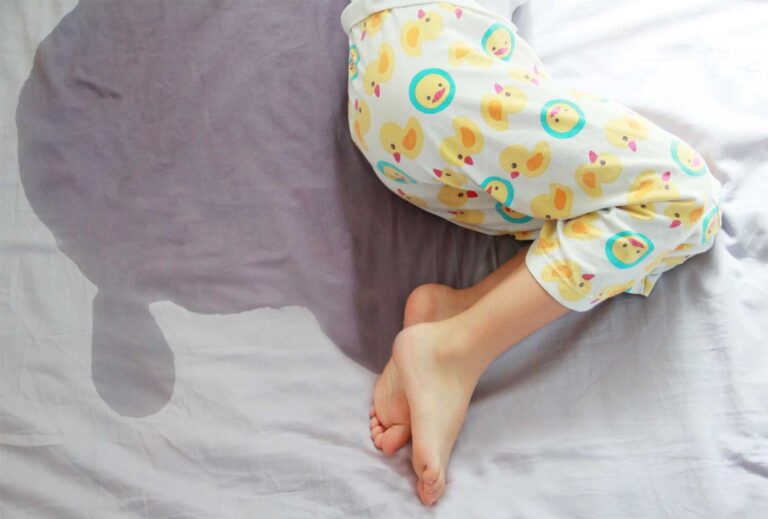-
Opening Hours
Mon - Sat: 10:00 - 19:00
Bedwetting
Home / Kidney Disorders / Bedwetting
Treatment
Bedwetting
Also called nighttime incontinence or nocturnal enuresis is involuntary urination while asleep after the age at which staying dry at night can be reasonably expected.
If bed-wetting continues, treat the problem with patience and understanding. Lifestyle changes, bladder training, moisture alarms, and sometimes medication may help reduce bed-wetting.

Symptoms :
Most kids are fully toilet trained by age 5, but there’s really no target date for developing complete bladder control. Between the ages of 5 and 7, bed-wetting remains a problem for some children. After 7 years of age, a small number of children still wet the bed.
Causes :
- Constipation : Pressure from an extra stool inside the rectum may interfere with the nerve signals that the bladder sends to the brain. A full rectum can also reduce the amount of urine that the bladder can hold or prevent it from emptying completely during urination.
- Hormones : A hormone called vasopressin limits the volume of urine that the body produces during the night. Vasopressin works by causing water in urine to be reabsorbed by the bloodstream, so a smaller volume of urine enters the bladder. Children who do not produce enough vasopressin might be more likely to wet the bed.
- Small Functional Bladder Capacity : Children with small functional bladder capacity have normal-sized bladders, but they sense that their bladders are full even when the bladder can still hold more urine.
- Psychological or Emotional Problems : Emotional stress caused by traumatic events or disruptions in a child’s normal routine can cause bedwetting. For example, moving to a new home, enrolling in a new school, or the death of a loved one may cause bedwetting episodes that become less frequent over time.
- Sexual Abuse : In some cases, children who begin wetting the bed again after they have learned to stay dry may be victims of sexual abuse. Other signs of abuse include:
- Frequent urinary tract infections.
- Vaginal pain.
- Itching.
- Unusual discharge.
- Sexually transmitted disease.
- Medical Conditions : Disorders that are associated with bedwetting include urinary tract infections,sleep-apnea. Neurological problems or kidney or bladder abnormalities may also be causes. If bedwetting recurs after your child has been dry for six months or more, a medical condition may be causing it.
Homeopathic Approach :
Bedwetting can be treated to a large extent with the help of natural homeopathic medicines. Homeopathy medicines for bedwetting work by targeting the underlying cause behind the problem. These medicines for bedwetting are highly individualized and are prescribed according to the symptoms.
Homeopathic Medicines :
- Causticum : Wetting the bed unconsciously during the first part of the night, involuntary urination when blowing nose. During night, when cold, during coughing, laughing and sneezing. Worse from cold, paralysis of bladder and weakness of muscle.
- Gelsemium : Bedwetting in patients suffering from headaches cures bedwetting when Causticum fails.
- Bryonia : Dribbling of urine when moving, it flows on walking and relived only by quiet.
- Alumina : Urine dribbling out involuntarily due to paralysis of the bladder .it is retained and then dribbled out.
- Rhustox : Urine escapes when sitting quite .no difficulty in holding urine when walking.
For appointment please call @ 020 27455480 / +91 9405 435 981
-
Opening Hours
Mon - Sat: 10:00 - 19:00